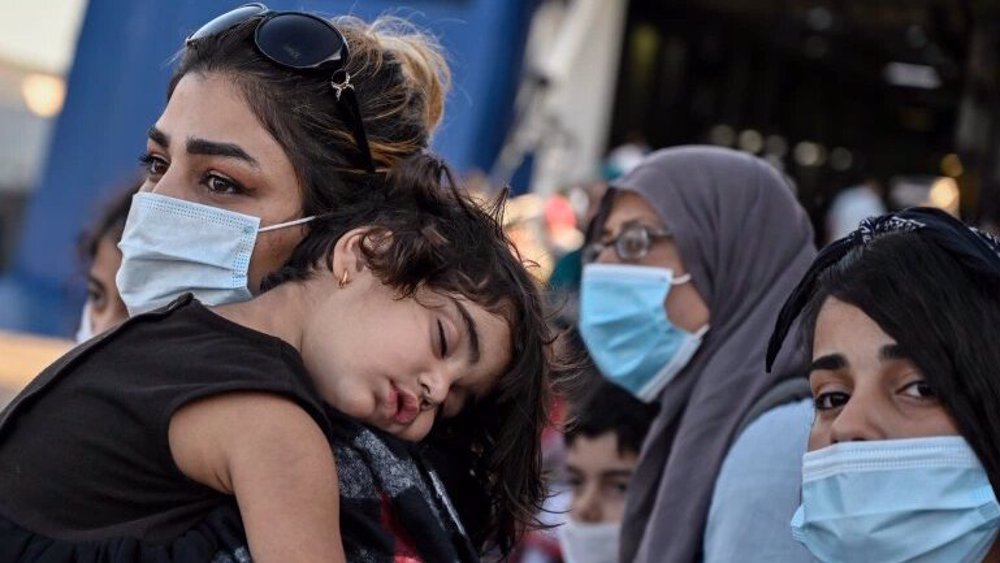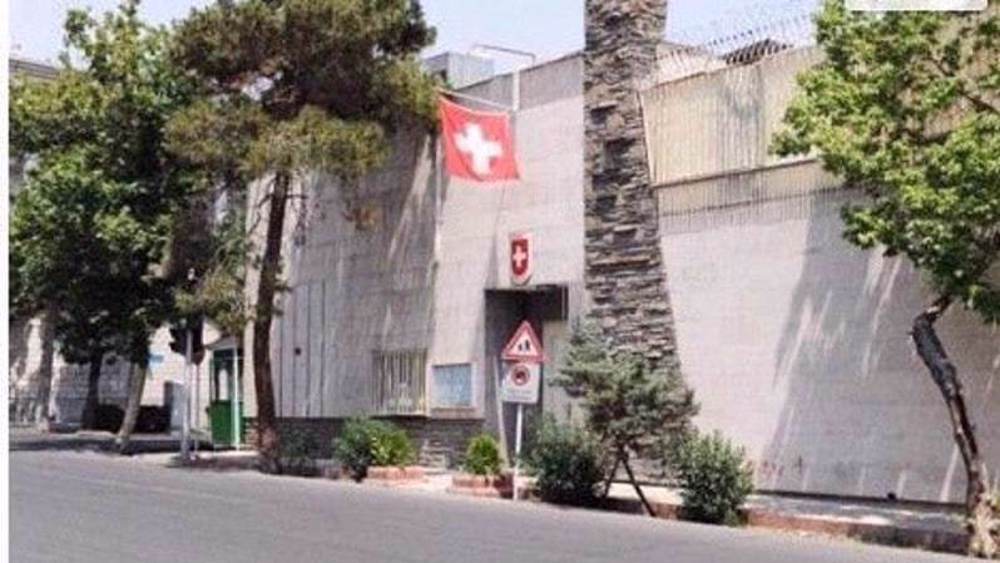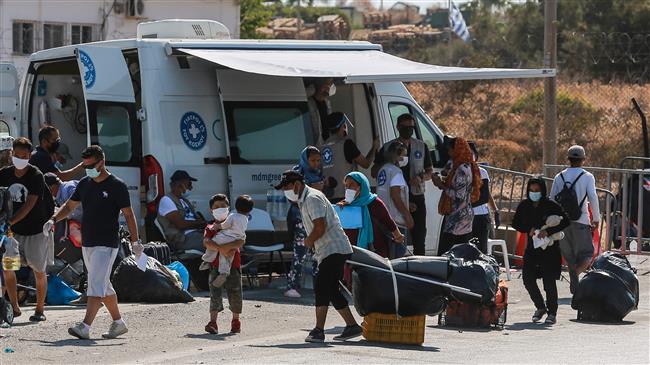EU policy causing mental health crisis for refugees on Greek islands: Group
A rights group has warned that the policies of the European Union (EU) regarding refugees have caused a mental health crisis among asylum-seekers of all ages trapped at refugee camps on three Greek islands.
In a report published on Thursday, the International Rescue Committee (IRC) said its research had revealed severe mental health issues, including depression, post-traumatic stress disorder (PTSD), and inclinations to harm oneself, among refugees of all ages and backgrounds on the Greek islands of Lesbos, Chios, and Samos.
The report, titled The Cruelty of Containment: The Mental Health Toll of the EU’s ‘Hotspots’ Approach on the Greek Islands, said some 15,000 people remained stranded at the EU-funded Reception and Identification Centers (RICs) — also known as “hotspots” — that were established on Europe’s borders in 2015 in a declared attempt to swiftly process applications for asylum.
The US-based IRC, a global humanitarian aid, relief, and development NGO, said it had collected data from 904 asylum-seekers supported by its mental health programs on the three islands, revealing that one in three of its clients reported suicidal thoughts, while one in five reported having made attempts to take their lives.
“I even tried to hang myself but my son saw me and called my husband,” said Fariba, a 32-year-old Afghan woman, a mother of two young children, who lives in the Vathy camp in Samos.
“I think about death a lot here: that it would be a good thing for the whole family, that if I could add a medicine in our food and we all died, it would be deliverance. But then I look at my daughter and I think it is not her time yet,” she added.
The so-called hotspots were set up when the three Greek islands, particularly Lesbos, came under huge pressure with nearly a million refugees and asylum-seekers trying to reach the continent.
According to the report, the five camps together hosted over 38,600 refugees back in January, six times higher than the hotspots’ capacity.
The number had largely decreased by November; however, the refugees still live under “inhumane” conditions and “in great distress, with limited access to food, water and sanitation,” it said.
The COVID-19 pandemic has compounded the problems for the refugees on the islands. According to the IRC, an “alarming spike” was witnessed in the number of people showing psychotic symptoms following the outbreak, jumping from one in seven to almost one in four.
The report added that a sharp rise was also seen in refugees reporting self-harm, which soared by 66 percent, as well as a surge in those reporting symptoms of PTSD, which increased from almost half of clients to nearly two in three.
“High levels of distress and severe symptoms of mental health conditions such as those mentioned above, negatively impact people’s ability to cope with the many challenges they face in the RICs, including standing in line for hours to get food or understanding and preparing for complex asylum procedures,” the report added.
It also stressed that those “with mental health issues can face high levels of stigma and discrimination, and increased vulnerability to exploitation or violence, including sexual violence,” warning that children were bearing the brunt of the crisis.
Israel kills female Palestinian journalist based in Gaza’s Indonesian Hospital
US lawmakers demand answers from Biden on Israeli killing of Turkish-American activist
Araghchi: Iran never left negotiation table as its nuclear program ‘peaceful’
Jan. 14: ‘Axis of Resistance’ operations against Israeli occupation
VIDEO | UNRWA’s financial crisis deepens amid support cuts
South Korean President Yoon arrested over failed martial law bid
VIDEO | Press TV's news headlines
US budget deficit surges to record $711 billion














 This makes it easy to access the Press TV website
This makes it easy to access the Press TV website